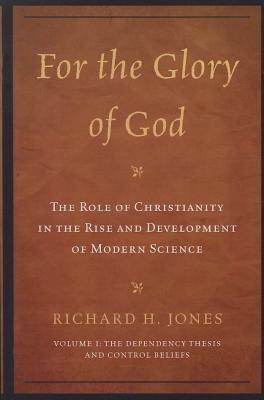For the Glory of God: The Role of Christianity in the Rise and Development of Modern Science(English, Paperback, Jones Richard H.)
Quick Overview
Product Price Comparison
Numerous books have been written by philosophers and scientists about how creationism and intelligent design are not part of science, but scholars have largely ignored two of the main historical and philosophical issues underlying the attack on science. First, conservative Christian scholars commonly claim that Christian theological doctrines are the source of modern science. To them, modern science is the stepchild of medieval Christian theology or early Protestant doctrines. They believe that without those theological beliefs as presuppositions, modern science could never have arisen and that Christianity, or at least theism, is the only possible source of these beliefs. They argue that even today, all scientists, whether they realize it or not, must be committed to these theistic or specifically Christian ideas in order to practice science. This "dependency" thesis has now become widely accepted, even outside conservative circles. For example, renowned scientists such as Edward O. Wilson and Paul Davies accept the historical part of this thesis as a given. Second, some conservative Christians argue that theology has the epistemic right to control the content of all scientific theories and indeed the very nature of science. To them, science unfettered from theological control cannot reveal the true nature of the universe, and so theology must control the content and methods of all science. In the words of the philosopher Alvin Plantinga, "Scripture can correct science." In For the Glory of God, Jones challenges both the Dependency Thesis and Control Beliefs. He presents the historical and philosophical case against the Dependency Thesis and examines why modern science arose in the West and not in another culture. Jones also explores the negative effects of Control Beliefs on science. Throughout this work, Jones systematically studies how past and present religious conservatives have dealt with the complex nature of science.


